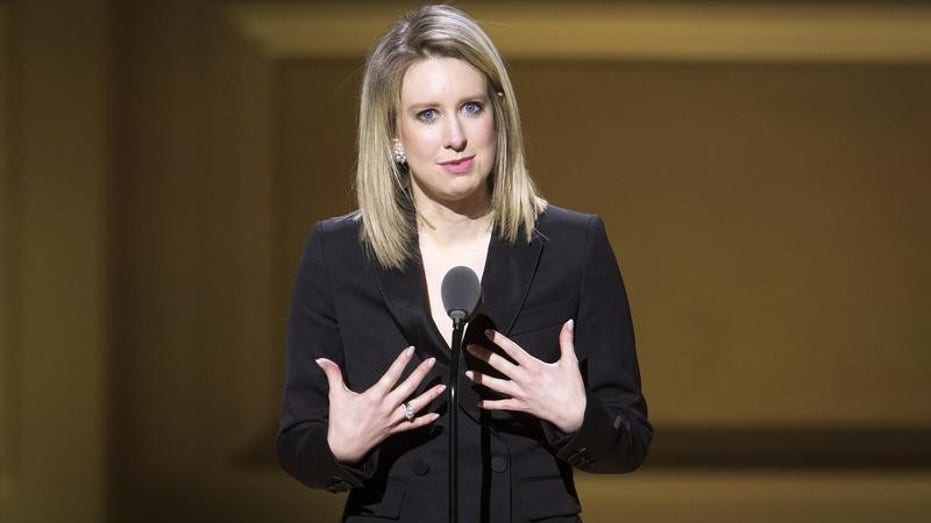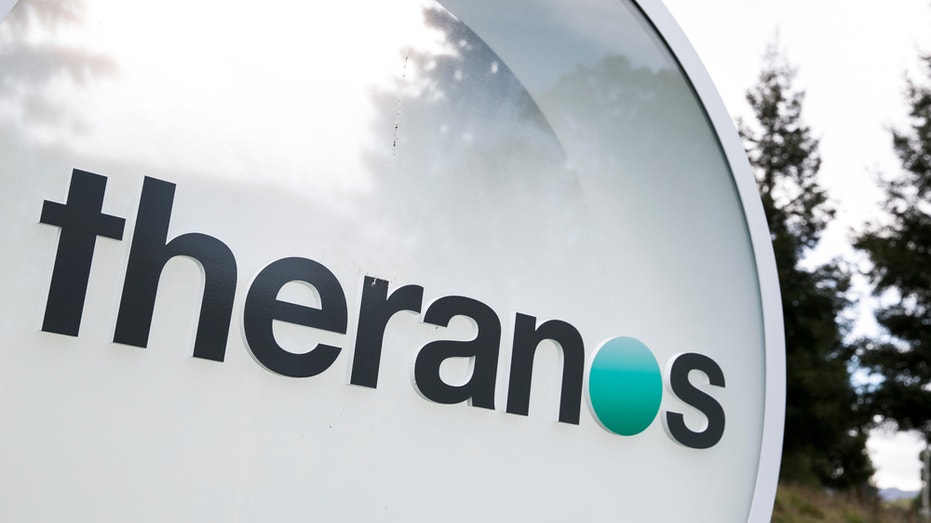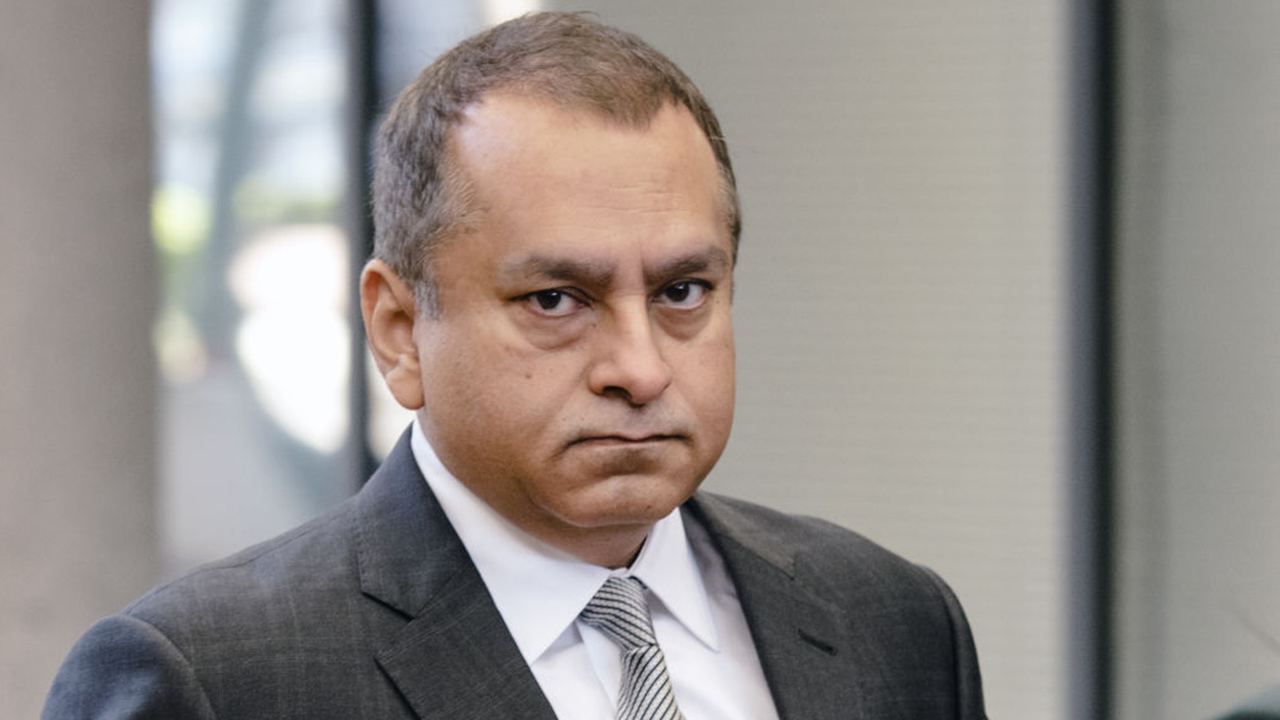Elizabeth Holmes trial: Jury selection set to begin in Theranos fraud case
The Holmes and Theranos names have been surrounded by scandal since the then-billionaire was charged on an indictment in 2018
Pregnant Elizabeth Holmes arrives at court
Theranos founder Elizabeth Holmes makes her first court appearance in over a year.
Jury selection begins Tuesday in the San Jose, California, trial against embattled Theranos founder Elizabeth Holmes, who is accused of duping doctors and patients, and defrauding investors of multimillions of dollars through the blood-testing startup.
The Holmes and Theranos names have been surrounded by scandal since the then-billionaire was charged on an indictment in 2018 with the company’s president, Ramesh "Sunny" Balwani, with whom Holmes once had a romantic relationship. Prior to that, Theranos had been under investigation since at least 2016, when Holmes and Balwani were temporarily banned from owning or running a medical laboratory.
Last week, Holmes alleged in newly filed court papers that she had endured an abusive relationship with Balwani for 10 years, during which time he sexually, emotionally and psychologically abused her, The Wall Street Journal reported.

Elizabeth Holmes, founder and CEO of Theranos, left, leaves the Robert F. Peckham Federal Building with her defense team in downtown San Jose, Calif., on Tuesday, May 4, 2021. (Nhat V. Meyer/Bay Area News Group via AP) (Nhat V. Meyer/Bay Area News Group via AP)
ELIZABETH HOLMES MIGHT CLAIM ABUSIVE RELATIONSHIP IN THERANOS FRAUD TRIAL
According to the court filing, Balwani "unequivocally denies that he engaged in any abuse at any time," The Journal reported. Nonetheless, the court papers provide a glimpse into her defense team’s possible arguments at trial.
Prior to that, both parties sparred for over a year about what they believed should and should not be included during the trial.
Holmes’ attorneys have argued repeatedly in court papers that details of their client’s "wealth, spending and lifestyle" should be kept away from jurors. But prosecutors have said Holmes’ "desire to retain her wealth and status created a powerful motive for Defendant to continue and conceal her fraud," past court documents show.
ELIZABETH HOLMES AGAIN A TOP MEDIA TOPIC AHEAD OF THERANOS TRIAL
U.S. District Judge Edward Davila ruled that prosecutors will be allowed to include information pertaining to her wealth – and the lifestyle benefits she was afforded as a result of her job and status – but must refrain from including specific spending details, The Journal reported at the time.
Theranos CEO Elizabeth Holmes charged with fraud by SEC
Theranos CEO stripped of company control
According to Davila, "each time Holmes made an extravagant purchase, it is reasonable to infer that she knew her fraudulent activity allowed her to pay for those items," the report states.
In another instance, prosecutors and the defense team also butted heads over evidence that either went missing or was destroyed.
Prosecutors claimed as part of their case that Theranos "destroyed" its Laboratory Information System, or LIS, database and, in turn, a plethora of potential evidence. But Holmes’ attorneys argued that the government doesn’t have the evidence "because the prosecutors sat on their hands for years before attempting to acquire it, and then sat on their hands again after acquiring it."
THERANOS FOUNDER ELIZABETH HOLMES GIVES BIRTH AHEAD OF CRIMINAL FRAUD TRIAL: REPORT
Davila ruled that this topic will be off-limits, but he can alter his decision if the circumstances change, according to the report.
Defense attorneys have also asked the court to exclude at trial any evidence of anecdotal test results, arguing that any blood test can give incorrect results "for reasons having nothing to do with a defect in Theranos’ technology."
But Davila ruled that such examples of inaccuracy can be used during the trial, according to the report.

Theranos Chief Executive Officer Elizabeth Holmes speaks on stage at the Glamour Women of the Year Awards where she receives an award, in the Manhattan borough of New York November 9, 2015. REUTERS/Carlo Allegri
They have asked the court to exclude any correspondence between Holmes and attorneys who were hired to represent the company.
Earlier this month, a magistrate judge ruled that emails between Holmes and big-name attorney David Boies, of Boies Schiller Flexner LLP, are admissible at trial because Boies was legal counsel for Theranos, not Holmes, at the time, according to a different report from The Journal.
THERANOS'S ELIZABETH HOLMES TRIES AGAIN TO KEEP LAB FAILINGS FROM JURY
Holmes and Balwani have pleaded not guilty to conspiracy to commit wire fraud and wire fraud.
Prosecutors have accused the pair of deliberately misleading investors, policymakers and the public about the accuracy of Theranos’ blood-testing technologies. They alleged that the pair "knew Theranos was not capable of consistently producing accurate and reliable results for certain blood tests, including the tests for calcium, chloride, potassium, bicarbonate, HIV, Hba1C, hCG, and sodium."
Holmes dropped out of Stanford University at 19 to found Theranos in 2003, pitching its technology as a cheaper way to run dozens of blood tests with just a prick of a finger and a few droplets of blood.
THERANOS FOUNDER ELIZABETH HOLMES’S 100 QUESTIONS FOR JURORS ARE SCRAPPED

A logo sign outside of the headquarters of Theranos in Palo Alto, California on January 24, 2016. (Kristoffer Tripplaar/AP)
Theranos shared very little about its blood-testing machine with the public or medical community. Holmes said she was inspired to start the company in response to her fear of needles.
She carefully crafted her image as well, wearing almost entirely black turtleneck sweaters that earned her the moniker in Silicon Valley as "the next Steve Jobs."
Investors bought what Holmes was selling and invested hundreds of millions of dollars in the company. At one time, Theranos was worth more than $10 billion and Holmes the nation’s youngest self-made female billionaire.
CLICK HERE TO READ MORE ON FOX BUSINESS
But a 2015 investigation by The Journal found that Theranos’ technology was inaccurate at best, and that the company was using routine blood-testing equipment for the vast majority of its tests. The story raised concerns about the accuracy of Theranos’ blood testing technology, which put patients at risk of having conditions either misdiagnosed or ignored.
Holmes later forfeited control of Theranos and agreed to pay a $500,000 fine to settle charges by the Securities and Exchange Commission that she had committed a "massive fraud" that saw investors pour $700 million into the firm.
GET FOX BUSINESS ON THE GO BY CLICKING HERE
The Associated Press contributed to this report.






















